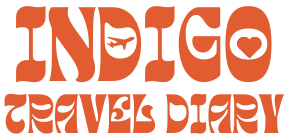Before making a reservation for a trip, tourists browse at hundreds of different websites. According to a recent survey, while Americans are making plans for their trips, they open up to 277 tabs on their computers.
When it comes to booking flights, there are a lot of different opinions on whether it is preferable to do it on your phone or on your laptop.
However, regardless of the technology that you are using, it is quite probable that you will experience complete and utter mayhem.
According to the findings of a recent survey conducted by Travelport, 58 percent of travelers find the sheer amount of options available to them when it comes to booking travel to be totally overwhelming.
Whenever it comes to finally booking those vacations that we have been preparation, the “Having trouble to Compare” study that the firm released took a look at how many different options customers (that’s us) had to choose from. The survey states that since 2010, the number of distinct product alternatives that are offered by the 250 airlines that are considered to be the most popular in the globe has increased from 500 to 10,000. Variations on the concept of “premium economy,” package deals, a variety of upgrades, and add-on experiences are all included under these product alternatives.
Because of all of these possibilities and the never-ending hunt for the “best deal possible,” people in the United States, in particular, are spending a significant amount of time comparing and studying prospective vacation destinations before making a reservation.
An Expedia study found that tourists in the United States read as many as 277 online pages before making a reservation, which is far more than the average number of pages visited by passengers throughout the world, which is 141.
When compared to the average time spent on travel material throughout the world, which is 303 minutes, this indicates that Americans spend up to 524 minutes looking at travel information before making a reservation. When it came to making reservations, Americans were looking at as many as 38 different websites in 2013.
In spite of the fact that all of this material is geared toward marketing experts and executives in the business, it does provide us, the regular customer, with some valuable information.
To begin, the process of making reservations is a terrible hassle. The prices of things are not all the same. It’s possible that you might be losing money due to garbage fees or poor information, depending on where you buy your flight.
If you want to have the impression that you are not being used by these enormous organizations and the many third-party websites that bring in revenue for them, you will need to exert a crazy amount of effort.
It demonstrates, for better or for worse, that the hectic and stressful experience of booking a hotel or airline is not an issue that you are responsible for. This is the second crucial thing that it demonstrates. Due to the fact that you are becoming confused with the variations between “basic,” “basic economy,” and “basic economy plus,” you do not lack any kind of travel superpower. There just were not nearly as many choices available in the past.
The “a la carte” booking method, despite the fact that airlines assert that consumers prefer it, does not seem to be as popular with those who are trying to plan a ticket in which they will not be handled like livestock by personnel who are underpaid and understaffed.
In the year 2023, Jacob Stern contributed to The Atlantic by conducting an investigation on the topic of hotel booking and garbage fees. He described the outrageous experience of attempting to find the greatest price and then reserving that hotel at that “discounted rate.” He said that it was an utterly bizarre experience.
Stern noted that over the whole of the encounter, “you will find yourself questioning what is true and what is false.” “It will beat you down until you reach a point where you won’t even care anymore at that time. All you’ll want to do is get it over with now.
The Federal Trade Commission suggested a ban on trash fees on platforms like as travel booking services and event ticket platforms back in October 2023. This is one of the ways that some of this issue has been addressed by proposed federal law. In spite of the fact that there is the possibility of federal legislation regarding the additional costs that an individual might build up when booking via certain websites, this only addresses a component of the entire horror experience.
A more significant issue that is more difficult to address is the question of what the final effect of having an infinite number of booking alternatives will entail for everyone; is this a bubble that will eventually burst?
Do you merely need to take a seat and get ready to invest a significant amount of time attempting to get bookings for destinations that you have already planned and prepared for?
The only way to get through all of the nonsense and jargon is to be able to pay the highest possible costs for services that are more cost-effective.
